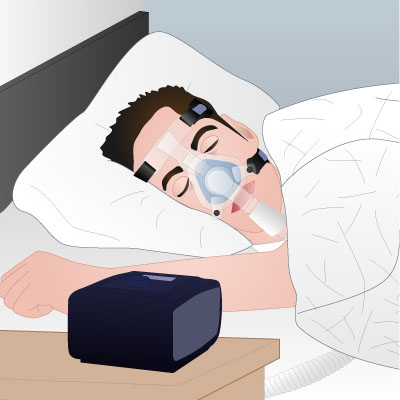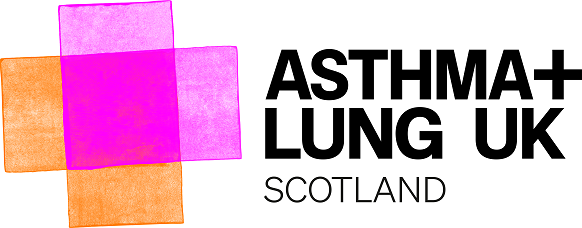
Continuous Positive Air Pressure
Asthma can increase the risk of developing Obstructed Sleep Apnoea (OSA) and other sleep related breathing disorders. Obstructed Sleep Apnoea (OSA) being the most commonly known.
Obstructed Sleep Apnoea happens when the upper airways are floppy and collapse. This results is loud snoring and can obstruct air flow causing short periods when breathing stops for a few seconds. This can happen many times each night. It is commonly associated with being overweight or obese, where the excess fatty tissue round the neck and upper chest push down on the airway when lying in bed. Obstructed Sleep Apnoea can be effectively treated with Continuous Positive Air Pressure (CPAP) allowing normal daily life to carry on. This uses a special face mask which you wear at night. Air at a slightly higher pressure is delivered by the mask to keep the airway open.





